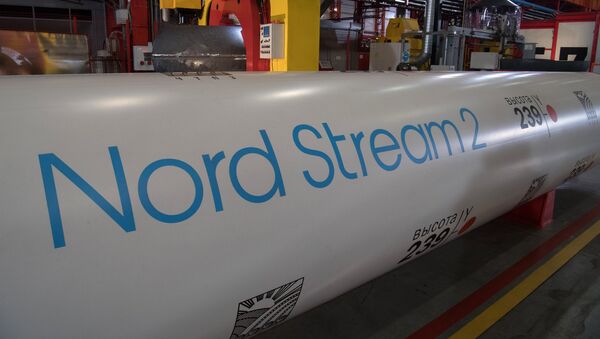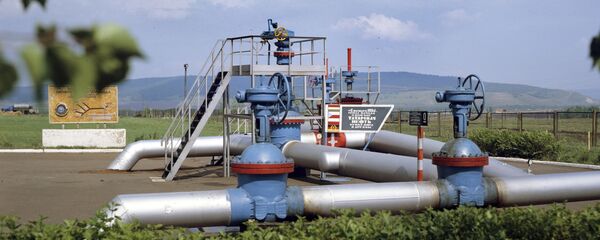MOSCOW (Sputnik) — Austrian oil and gas company OMV expects a change in the financing scheme for the construction of the Nord Stream 2 gas pipeline due to new US sanctions, company's CEO Rainer Seele said Wednesday.
"We will need to make it even clearer that we support this project and we are not going to abandon it, of course. We will probably have to revise the situation with the financing of Nord Stream 2, but the obligations under this project, the commitment to complete the project is preserved, and all enterprises that have given this commitment will try to fulfill them," Seele said.
It will not possible to organize the planned financing for 70 percent of the pipeline's cost, the OMV CEO added, saying that and the project participants will either have to seek funds from Russian and Asian banks or invest more of their own money.
At the same time, he expressed confidence that the project would be fully financed.
"I do not consider 70 percent that it has become much more difficult to provide to be a problem. If we can not do this in one way, then we will look for other opportunities, we will seek our own capital. If there is a very bad scenario, and the banks do not give us a single euro, we will have to finance the whole project by our own funds," the CEO concluded.
The Nord Stream 2 project presumes the construction of a pipeline that will have an annual capacity of 55 billion cubic meters of gas. The new pipeline is planned to be laid along the existing Nord Stream pipeline route from the Russian coast through the Baltic Sea and on to a hub in Germany. The launch of the gas pipeline is planned for 2018. Gazprom and OMV, along with France's Engie, Royal Dutch Shell, Germany's Uniper and Wintershal, are engaged in the project.
In late April, Nord Stream 2 AG and its European partners signed agreements on financing of pipeline project. Gazprom noted that European partners would provide Nord Stream 2 AG with loans at a rate of 6 percent annually until 2019. At the same time, Gazprom itself will provide financing for Nord Stream 2 AG on the same terms. It was assumed that prior to attracting project financing, the project would be funded by bridge loans, which might cover up to 70 percent of the total project costs, or up to 6.65 billion euros ($7.95 billion).
In early August, US President Donald Trump signed a bill imposing sweeping sanctions on Russia, specifically targeting the country’s financial and energy sectors and counteracting the construction of Nord Stream 2 pipeline.
Following the adoption of the bill, German Foreign Minister Sigmar Gabriel called the new sanctions illegal, stating that the United States aims to take Russia’s place on the European energy market.
The route of the Druzhba pipeline runs from the Russian city of Samara through Bryansk to Mozyr in Belarus before branching out into two sections: northern (through Belarus, Poland, Germany) and southern (through Ukraine, Slovakia, the Czech Republic, Hungary and Croatia). In 2009, Russia and Austria held talks, during which Russia supported the idea of extending the pipeline from Bratislava to an oil refinery near Vienna.
"We are waiting for the approval of the Slovak authorities, we do not have it so far," Seele told reporters, adding that additional coordination is required from the environmental authorities, since the pipe crosses the Danube River.
He also confirmed that OMV retained interest in the project.
The Druzhba oil pipeline was established in 1964. It is the world's longest oil pipeline and one of the biggest oil pipeline networks in the world.



